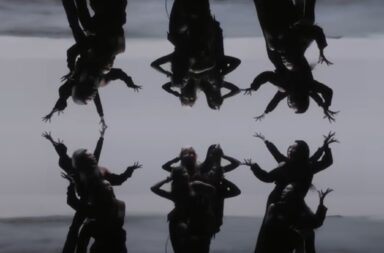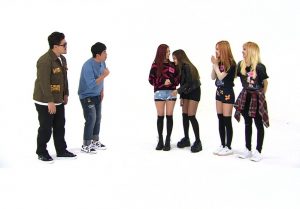
For most celebrities in the world of K-entertainment, it is pretty much a given that they will be asked the routine ideal type question at least once in their career. Variety show MCs and radio hosts love to inquire celebrities as to what kind of invigorating person of the opposite sex they gravitate towards and fans are ravenous for the answer.
Why is this question so popular among hosts and fans in the first place? Possibly because, if the interviewee happens to respond with a list of physical appearance and/or personality criteria that even just marginally matches a fan’s self-description, this fan might begin to hold a faint glimmer of hope that they and their bias might actually be soulmates who are only missing that one incidental meeting, perhaps a chance encounter at a dinner with a mutual friend that develops their relationship into a quirky friendship that was actually true love all along. Sound too much like the plot of Silver Linings Playbook? That’s the beauty of a fantasy; it doesn’t have to be realistic (or original, for that matter).
Even if the interviewed celebrity names another celebrity as an ideal type in lieu of specific personality or physical criteria, this can still add fuel to a different kind of fan fantasy: shipping. Which makes sense, because it might explain why these certain responses have been largely met with indifference or supportive attitudes in the past. Certainly, this shipping mentality does come with its own set of problems, but discussing this further would be digressing from the topic at hand.
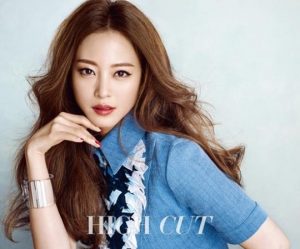
There have been some particular women who are named more frequently as an ideal type than others. For instance, Han Ye-seul was referenced by Infinite’s Sunggyu, EXO’s Kai, and actor Jang Geun-suk. Similarly, Taeyeon was named as the ideal type of GOT7’s Bambam and B1A4’s Baro.
The constant naming of these women as ideal types can be attributed to the fact that they can be considered as safe answers that are unlikely to lead to controversy, simply because these ladies fit the Korean beauty standard well. What better examples are there of the idealized V-line jaw and doe eyes than Han Ye-seul and Taeyeon?
That aspect aside, however, one may expect that naming specific celebrities as an ideal type can prove detrimental to a fan’s fantasy by potentially ruining any hope that their favorite idol will find anyone beside their stated ideal celebrity to be attractive, putting a damper on the whole hypothetical imaginative romantic comedy playing out in the head of the fan. Surprisingly, though, there has rarely been, if any, controversy in the past over these responses, which leads us to the conclusion that fans tend not to subscribe to this line of thinking, or act out on it. After all, when Mino named Sulli as his ideal type back in his BoM days, there was no ensuing uproar from fans.
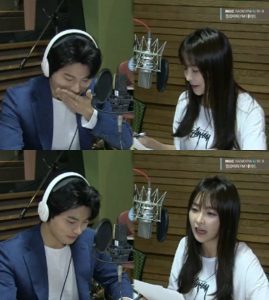
Be that as it may, there appears to be more controversy caused by ideal type answers lately. Actor Lee Yi-kyung made a recent appearance on Jung Yoo-mi‘s FM Date, and chose Taeyeon as his final answer when the host asked him to name his ideal type was out of a few celebrity names through a series of elimination rounds. Taeyeon’s fans sent messages to the actor, expressing their dissatisfaction of his actions and conveying the message to stop mentioning her name. As a result, he had to issue a formal apology to them and explain that Taeyeon was his close friend, and she invited him to a concert that he couldn’t attend, which was why he named her as his ideal type. The logic of this reasoning isn’t very clear, but he was perhaps implying that he chose Taeyeon as a small way of making up for being unable to watch the concert.
As mentioned before, naming ideal types is a common practice, and in fact, Taeyeon was frequently named as an ideal type in the past. So, why is Lee Yi-kyung on the receiving end of so much backlash while the others before him weren’t? And, overall, what makes an “unacceptable” celebrity ideal type?
To analyze the answers to these questions, we must first look at other similar ideal type controversies. Super Junior’s Shindong named Red Velvet’s Wendy as his ideal type not very long ago, to which K-netizens began bombarding Wendy with messages and berated him for having no filter. He consequently issued an apology. BtoB’s Eunkwang named Red Velvet’s Seulgi as his ideal type, to which he also apologized, with the reason being that it was unpleasant to fans on both sides.
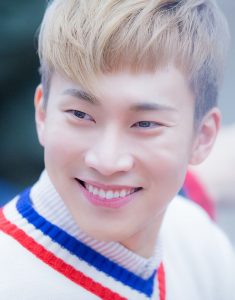
The underlying commonalities between all these cases are the gender of the perpetrators, the recent dates of the incidents, and the fact that most of the controversy stemmed from the appraisal of K-netizens over the situation. Meanwhile, the marked differences between each case are the distinct age ranges, and the images of the men involved.
Eunkwang’s incident could be explained by the general reputation of carefulness and thoughtfulness that BtoB has amongst fans. Naming a spur of the moment ideal type seems to contradict this image, as BtoB’s fan’s might have expected a member of the group to have the capacity to avoid falling into the trap of objectifying women by naming them as an ideal type (more on this later), rather than recognizing the woman as a real person, with flaws and all. Thus, fans may see his ideal type naming as a shattering of the rapport built between the two parties, resting on an expectation of general respect and consideration of others (in this case particularly women).
Additionally, Shindong’s perceived impolite behavior through his lighthearted joking amidst IU‘s serious thank-you speech during an episode of Inkigayo back in 2010, among other cases, and his past badmouthing of overweight women generally gave him a negative reputation among netizens. Therefore, it follows that his actions will hang in the background of his public appearances and actions and color them in a more unfavorable light. This extends to include this seemingly mundane recent ideal type naming incident.
Correspondingly, Lee Yi-kyung’s drunk driving charges back in 2013 might have also influenced netizens to rebuke him for what seems like a small and insignificant occurrence. Fans told him to “stop mentioning Taeyeon’s name,” which seems to imply that her fans are wary of the association of Taeyeon’s image with someone who has a less than stellar reputation. Although Taeyeon herself has had some controversies in the not-so-distant past, it is safe to say that they are much less serious in degree when juxtaposed with a DUI charge.
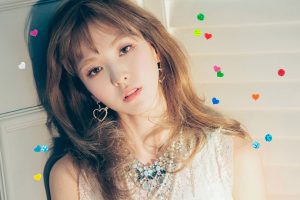
Shindong’s controversy can also be seen as a result of growing discomfort towards the objectification of younger females by older males. In general, it can be conceded that female idols have a large expectation placed upon them to uphold more traditionalist sexual attitudes. When they break the mold of a pure and immaculate image, they will inevitably face some kind of backlash, as evidenced by the whole Sulli saga. In contrast, male idols can freely rip off their shirt on stage, and almost nobody bats an eye.
This combination of an alpha male with more sexual liberties — even more so emphasized when the male is older and in a position of greater power — and a docile female who is expected to cover up her sexuality (and more notably so when the female is younger and wields less power) can make what might look like the objectification of younger girls by older men especially disconcerting for some.
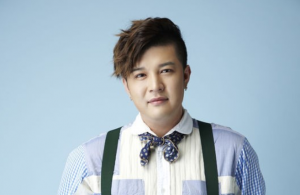
These mindset is noticeably present in the audience outcry over the characters’ age differences in Goblin, where viewers have expressed being put off by the romance between a teenage girl and an adult, immortal man who is more than 900 years old. Thus, K-netizens’ discontent toward the 31-year-old Shindong’s ideal typing of a girl almost 10 years his junior can be seen as an extension of these attitudes.
The position of men in the K-entertainment industry has its downsides as well, and there are definitely still specific boundaries and societal norms that male idols are expected to adhere to in this realm. For example, imagine the repercussions that a male idol would face if he stripped down to a glittery speedo leaving little to the imagination in true Magic Mike fashion. But on the contrary, imagine the even bigger controversy that a female idol would generate if she did this same thing.
Even though netizens may have seem to have always felt some unease when it comes to males objectifying females rather than the other way around, these feelings seemed to have heightened recently, as made clear by all these recent ideal type controversies compared to past ones that got little to no negative responses. Due to an increased awareness in this difference in the way men and women are viewed, the situation becomes especially dicey when it comes to male idols naming female ideal types, as fans might be beginning to see more of a concealed pretext of a benevolent kind of sexism towards women.
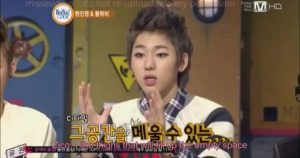
At first glance, Zico’s declared preference for women with thick thighs and Jun Jin’s (Shinhwa) designation of bipolar women as his ideal type from some years back may seem innocent, especially when compared to more blatant examples of sexism in the scene, such as fat-shaming, describing physical traits using food metaphors, or fancam culture amongst other forms of exploitation. These examples, though disproportionately involving and degrading women, don’t apply exclusively to them either, as male idols are frequently sexualised as well (but this topic comes with its own set of complexities, deserving of a separate article altogether).
Expressing a preference for “thick thighs” may appear to be a form of body positivity. Nevertheless, when we consider the ideal type question, it shifts the focal point of the model woman to a few glamorized traits. The responses then, no matter how well-intended, may seem to carry the connotation that women are invaluable outside the select traits that the man in question gives as his answer. These answers subtly enforce several physical and personality characteristics that women must strive for to be accepted into a patriarchal norm rather than accepting themselves for all the complexities of their character and appearances. Going back to Zico’s case, by stating “thick thighs” as an ideal type, he conveys the message that women should strive for his optimal curvy figure, robbing them of the free will to decide for themselves what body type is best.
Jun Jin, on the other hand, can be seen as encouraging the romanticization of an oversimplified caricature of women with a very real and debilitating mental illness, downplaying the seriousness of the condition. But even though these cases are perhaps more problematic, Jun Jin and Zico didn’t face significantly unfavorable consequences like Shindong, Eunkwang, and Lee Yi-kyung.
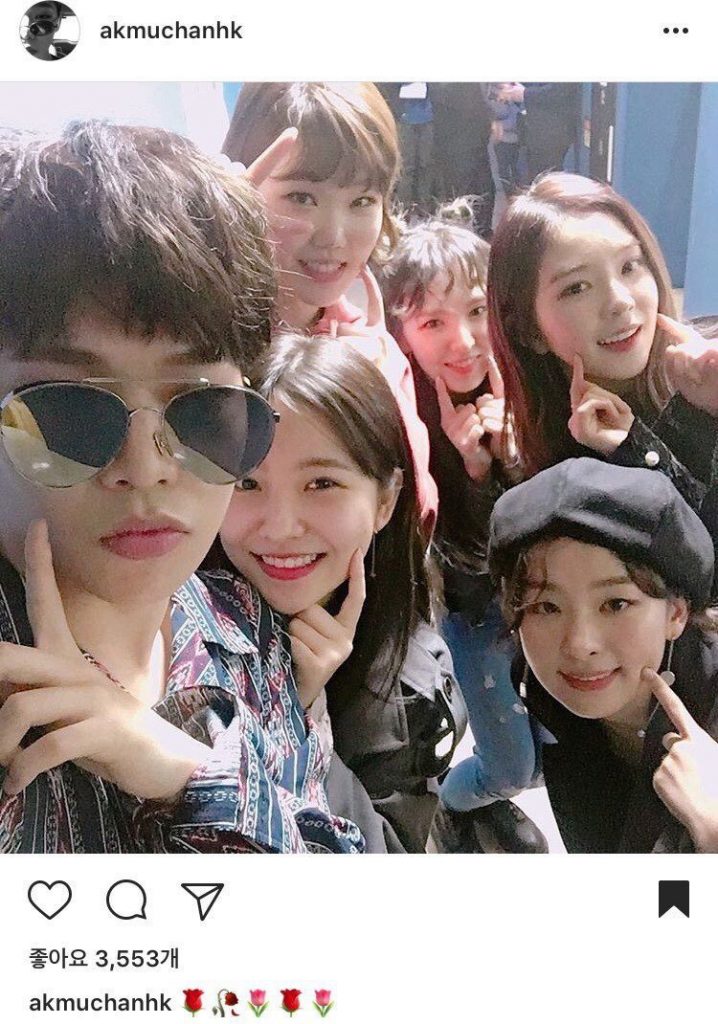
The root of this maybe the fact that, as of late, there appears to be growing discomfort amongst netizens about this type of objectification. This can be seen by the uproar over AkMu’s Chanhyuk calling the members of Red Velvet “flowers”, with comments such as:
Akdong Musician’s Chanhyuk needs to be gifted books on feminism. I hope he reads them before his enlistment. One of the more urgent books he needs to read is this one: ‘We are not flowers, we are voices’
This example, along with the ideal type incidents, seem to gesture towards a growing awareness of even seemingly benign types of objectification that is generating more backlash.
But what of the women who answer the ideal type question? When women in the Korean entertainment sphere name ideal types, they are not usually met with opposition from the public, even under similar circumstances as the recent cases discussed. Case in point: Wendy named Park Myung-soo as her ideal type with no following controversy. Even though this pairing has a large age gap, the results appear to be different when the pairing in question is introduced by the younger female rather than the older male. In this situation, the power dynamic appears to be switched, as the younger woman has control over who she chooses, rather than being chosen by an older man. This may make the pairing easier to swallow for netizens, as it tosses all the previous implications of female-to-male subjugation out the window.
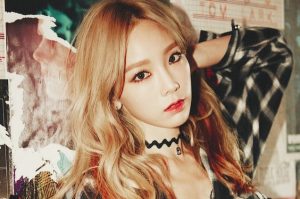
While the recent ideal type controversies discussed could be seen as just coincidentally brought on due to the specific circumstances of the men involved, they could also be demonstrative of a larger shift in the Korean entertainment sphere towards less accepting attitudes of sexism towards females. It is largely up to interpretation on whether Shindong’s age gap, Lee Yi-kyung and Shindong’s controversies, BtoB’s reputation as considerate idols, or a growing K-netizen discomfort against positive female objectification plays a larger role in these occurrences.
Even so, responses still highlight a growing negative attitude against ideal type questions. The fact that less obviously sexist Shindong, Eunkwang, and Lee Yi-kyung cases have created such outrage shows possible progress towards a greater awareness of female objectification in K-entertainment, especially in comparison with the little response generated from the more flagrantly sexist cases in the past such as Zico and Jun Jin’s. Maybe it will follow that, however unlikely or slowly this may occur, the ideal type question will disappear from interviews in future.
(Chosun, Herald Pop, Mwave, Netizen Buzz, News1, X Sports News. Images via SM Entertainment, Instagram, Cube Entertainment, High Cut, MBC, Mnet.)

